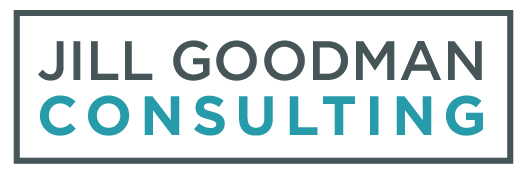Are You Harassing Your Donors?
I am spending more time in my practice's development and fundraising arm since the shifts in the post-pandemic educational landscape. Listening to two of my favorite podcasts, I encountered two very different approaches to fundraising.
The title of the No Stupid Questions episode, Is it Worth it for Charities to Harass Their Donors, was shocking and disheartening. Is that how most people see charitable organizations as harassing and untrustworthy? And if so, is that how alums, parents, and grandparents see our attempts to get to know our prospective donors and encourage giving to our schools? By contrast, Kathryn Van Sickle hosts the podcast, The Development Debrief, with a very different perspective. Her guest, Jennifer Kaplan Burns, Assistant Head of School, Advancement and External Affairs at Solebury School, talked about her school's commitment to developing relationships with its prospective donors. She has seen the great success that approach has brought the school in the annual fund and a capital campaign.
The hosts of No Stupid Questions were outraged at the idea that if they donated to a charity, they might expect 12 or more additional appeals or communications from that charity in the following year. They interpreted that level of communication as harassing. But they also didn't have a personal relationship with the charity they dissected in the episode. The relationship they described was transactional. They received an appeal that tugged at their heartstrings, gave a one-time donation, and moved on, confident that the transaction assuaged their guilt.
That is the key: the nature of the relationship. When development officers (people) have relationships with donors (people), each is generally interested in the motivation, goals, values, and well-being of the other.
How does the development office at an independent school go about building genuine relationships? How do you avoid the potential for mistrust or, worse, harassment? Here are three things to consider:
Who builds trust-worthy relationships at your school? Traditionally, the admissions staff creates the first trustworthy connections at the school with families. But come September, the relationship-building responsibility suddenly shifts to the development office without warning parents. Think about making this transition smoother. An Advancement Model can help remove siloes at your school and help families understand that everyone is working toward the same goal of building community.
Who does the asking for gifts to the school? Think about how your school asks for money from their donors, who tend to be parents and alums. They might receive a phone call from a peer liaison, a snail mail letter, or a series of emails from the development office, and perhaps they might agree to meet with the development officer. If the prospective donor is a parent, they might also be asked for donations from the parents' association, the athletics booster club, the arts council, and the debate team, to name a few of the likely askers. I refer to this as "development cannibalism," as all those asks erode your ability to form relationships and a culture of philanthropy with parents at the school.
Staff up. You can't be understaffed and do it all. But many development shops feel understaffed and under-resourced and increasing staff may not be an option. So, what do you prioritize? Your top priority should be to build relationships, learn the art of asking for a gift in a meeting that you scheduled for that purpose, and steward as many prospective top and mid-level donors as possible. The most significant donations to the school, the ones that are transformational to the organization and the donor, will not come through your gala or fall fun day. Events are the least cost-effective and one of the most transactional forms of school fundraising. Use your time and resources wisely and invest in relationships.
Thankfully, I have yet to meet an independent school development professional that is in the habit of harassing their donors. If anything, the development officers are hesitant to reach out too often. But in all likelihood, their donors might like to hear from them a bit more often and a bit more personally. After all, yours is a school that your donors love. It holds an important place in their heart and life. Your job is to remind and encourage, never harass.
The author, Jill Goodman, is a consultant working with independent school leaders to advance their school’s mission, enhance their processes, and bolster their skills. Learn more about all services here.



